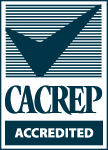School Counseling
The Clinical Mental Health Counseling and School Counseling programs at Bowling Green State University are committed to the mission of providing top-quality education and training in order to prepare highly qualified, ethical, and culturally competent professional counselors who advocate for social justice. The programs value an inclusive and diverse learning environment. To this end, the graduate programs offer opportunities that integrate learning discovery, scholarship and engagement that challenge traditional and non-traditional students to reach their academic and professional potential. Applicants may apply for fall admission. The programs hold most classes face-to-face in the evening and cannot be completed online.
The Clinical Mental Health Counseling and School Counseling programs establish high standards of academic and professional competence consistent with state and national standards for licensure to practice in educational and mental health environments. The Clinical Mental Health Counseling and School Counseling programs demonstrate commitment to their mission statement through continued accreditations. Currently, the Clinical Mental Health Counseling and School Counseling programs are accredited by the Council for the Accreditation of Counseling and Related Educational Programs (CACREP). The Clinical Mental Health Counseling is an approved program of the Ohio Counselor, Social Worker, Marriage and Family Therapist Board, which means that graduates of this program will be accepted as having met the academic requirements for professional licensure in Ohio. The School Counseling Program is approved by the Ohio Department of Education, which indicates that graduates of this program have met the academic requirements for school counselor licensure in Ohio. The programs are dedicated to engaging in continuous program development related to the latest research in the field as well as the changing licensure requirements our graduates must meet. The faculty is involved in scholarship, service and professional activities, which are used to enhance the teaching mission of the program and play a role in meeting the educational needs of practitioners in the community.
Academic Year 2022-2023
Counseling Program/Student Outcomes
Approximately 107 students were enrolled in these degree programs: 76 students in the clinical mental health counseling program and 34 students in the school counseling program.
From Fall 2022 to Summer 2023, 38 students graduated from the Clinical Mental Health Counseling program, an 88% completion rate. In Ohio, clinical mental health counseling students take the National Counselor Exam (NCE) for licensure. Bowling Green Students had an 97% first attempt pass rate on this exam during this time period. Of those seeking employment, 100% were employed in the counseling field within 180 days of graduation.
From Fall 2022 to Summer 2023, 16 students graduated from the school counseling program, a 98% completion rate. In Ohio, school counseling students take the Ohio Educators Assessment (OAE) for licensure. Bowling Green Students had an 92% first attempt pass rate during this time period. Of those seeking employment, at least 93% were employed in the counseling field within 180 days of graduation.
Educational Objectives
The educational objectives of the Clinical Mental Health Counseling and School Counseling programs have been designed to provide a comprehensive professional preparation of graduate students in which:
- Students will distinguish between counseling theories.
- Students will integrate theory and practice for individual and group counseling settings.
- Student will examine practices surrounding multiculturalism, diversity, inclusion, and equity.
- Students will develop a professional counselor identity with a foundation in the integration of evidenced based practice and applicable ethical codes.
- Students will evaluate their self-awareness and self-development through reflective practice of counseling skills

Updated: 03/31/2025 09:09AM





